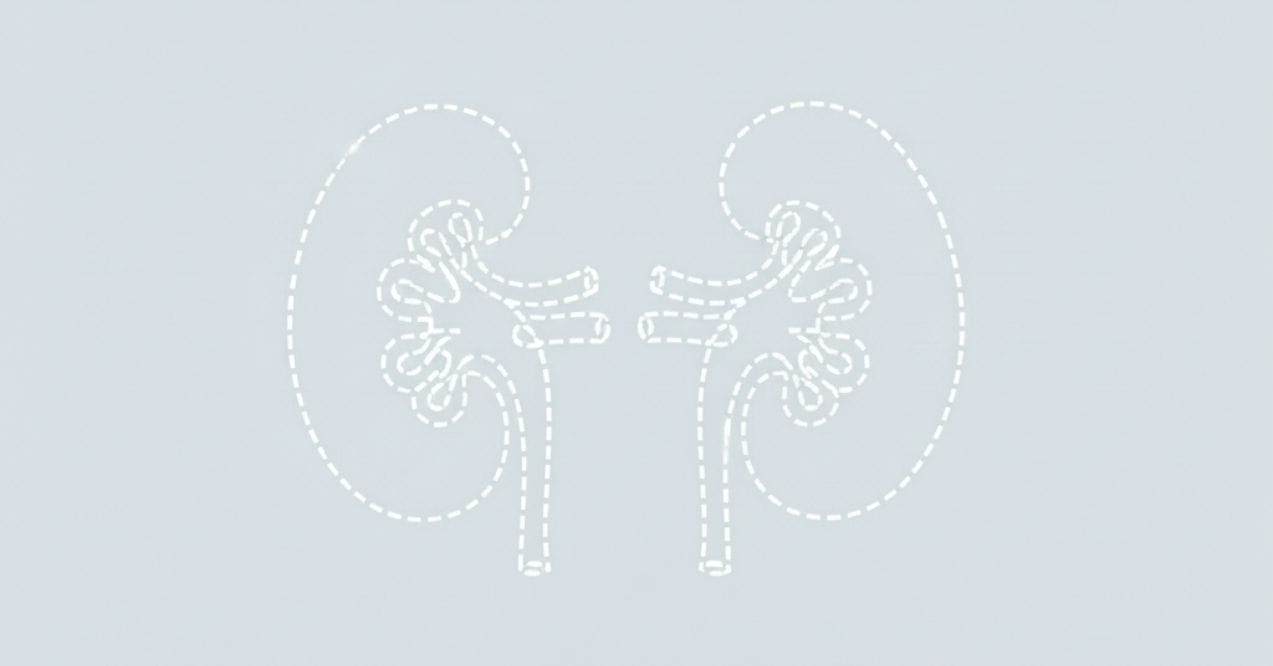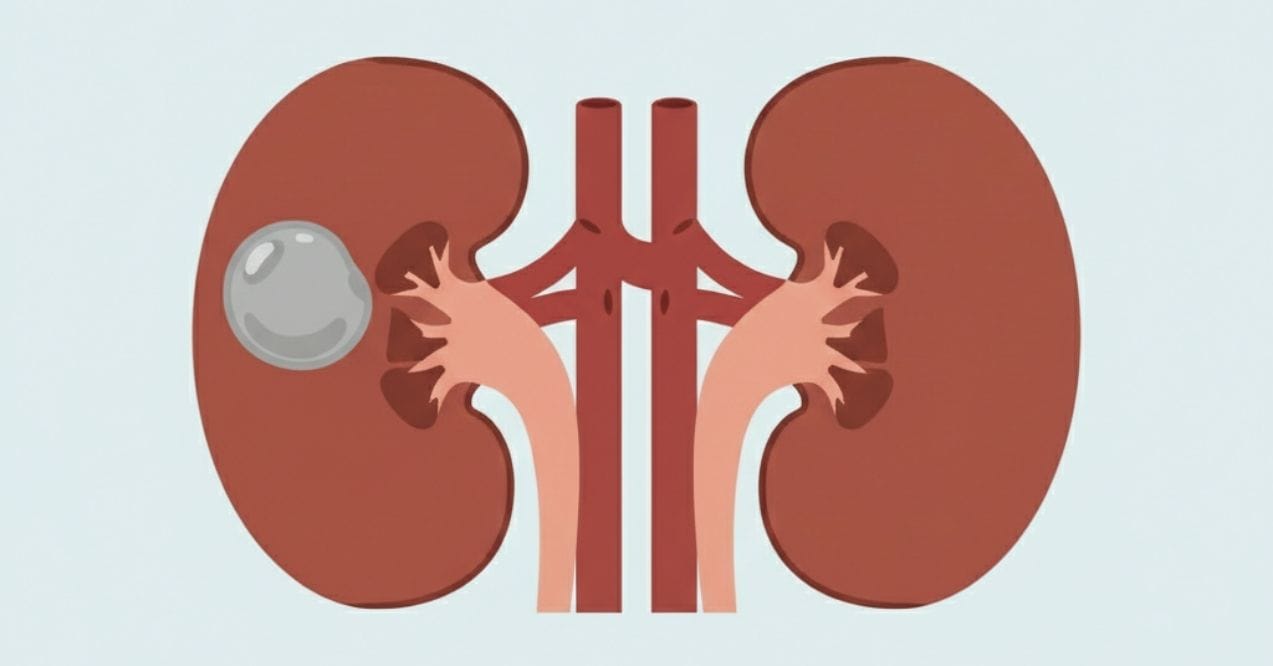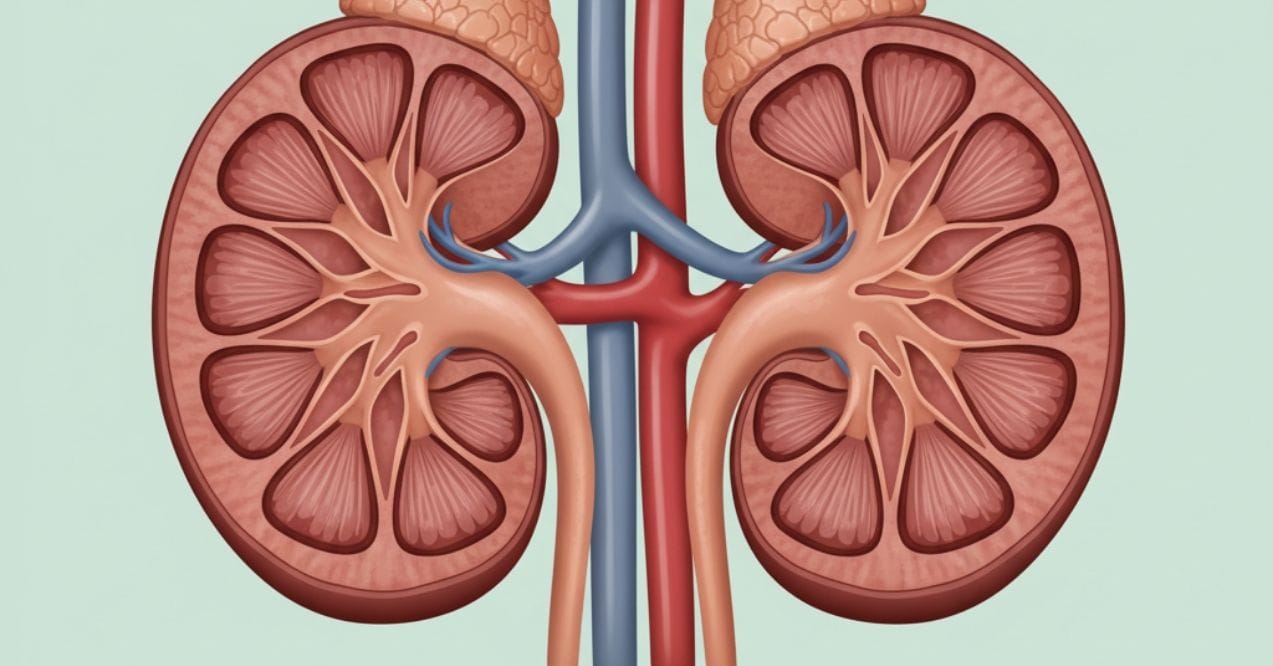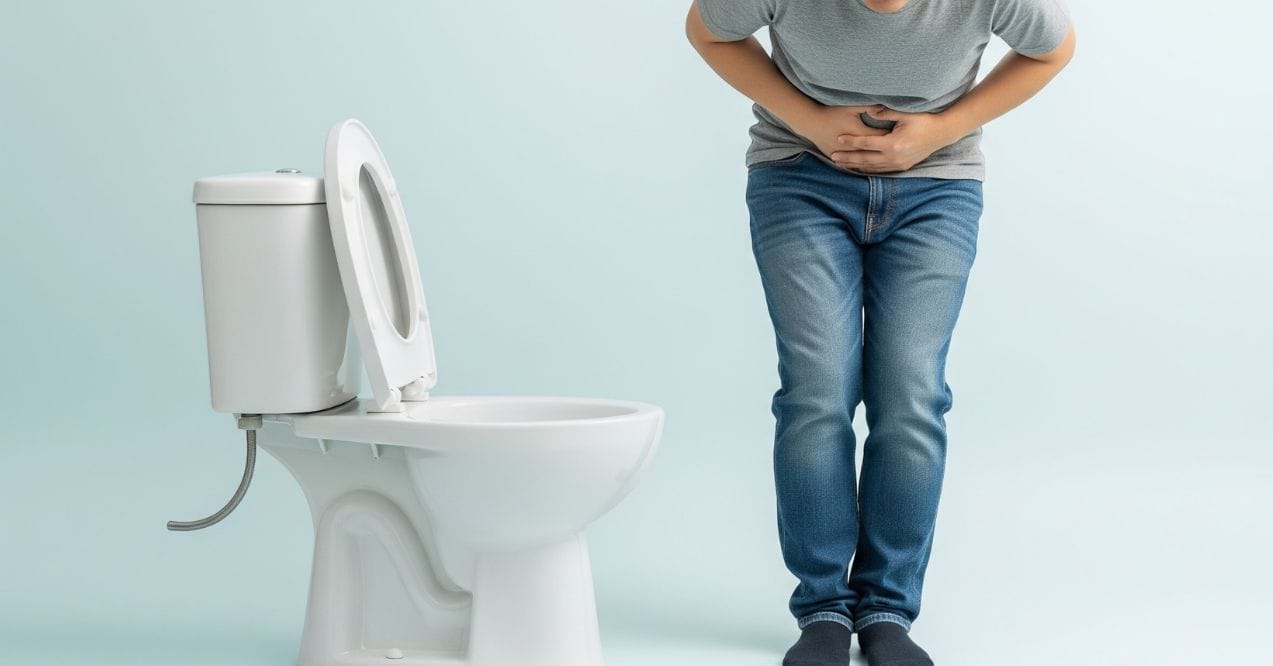Does Tea Cause Kidney Stones? Latest Research Findings
Does tea cause kidney stones? Research shows the answer depends on tea type, quantity, and hydration. Get the facts on safe tea consumption.
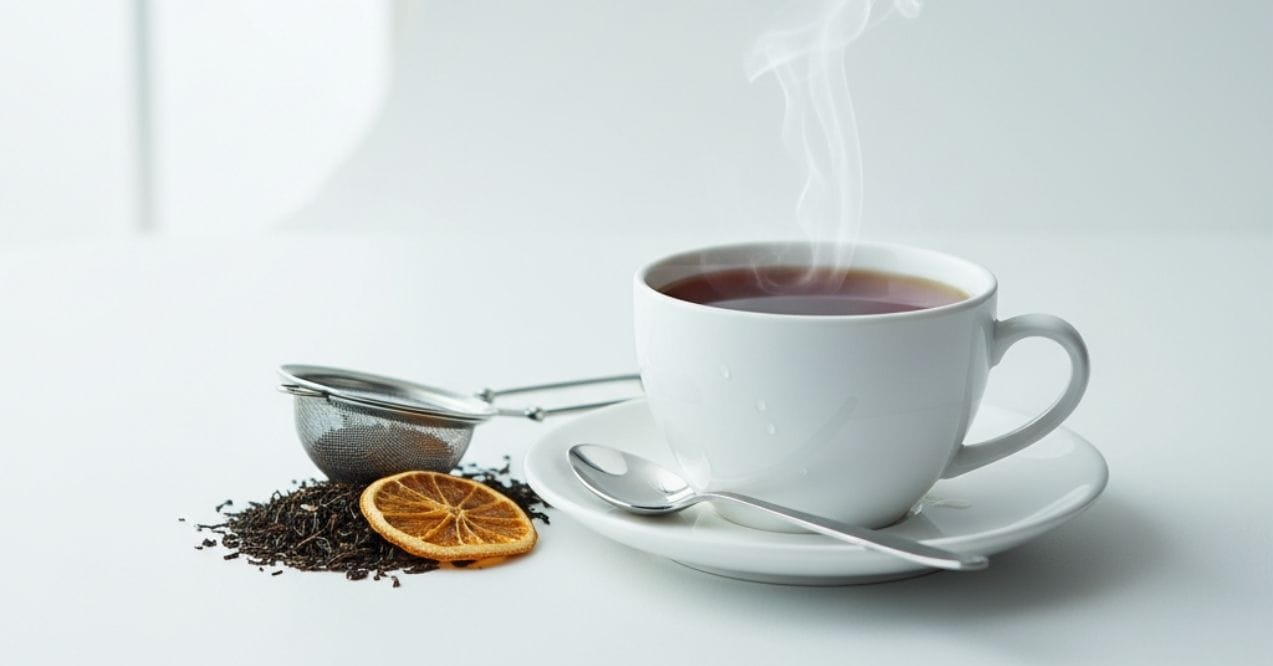

Does tea cause kidney stones? This question concerns millions of tea drinkers worldwide. Many people worry about their risk, especially after experiencing kidney stones.
The connection between tea and kidney stones has sparked debate. Some studies suggest certain teas may contribute to stone development. Other research points to possible benefits. The truth depends on several factors.
Tea type matters. Consumption amount matters. Your diet matters. This article examines recent research findings. You’ll learn how to make informed choices about your tea habits.
Does Tea Cause Kidney Stones? What the Science Says
The link between tea and kidney stones centers on oxalates. These are natural compounds found in many plants. Oxalates can concentrate in urine. They may bind with calcium to form crystals. These crystals can develop into kidney stones.
The majority of kidney stones contain calcium oxalate. Tea contains varying amounts of oxalates. The amount depends on tea type, brewing method, and concentration.
A large study followed 502,621 Chinese participants over 11 years. People drinking three or more cups daily had 27% lower stone risk. Can tea cause kidney stones? Current evidence suggests moderate consumption doesn’t increase risk for most people.
Black Tea and Oxalate Levels
Black tea ranks among the highest oxalate beverages. Research shows black tea oxalate content is 4.68-5.11 mg per gram. Loose tea contains slightly more than tea bags. This translates to varying amounts per cup depending on brewing time.
Does black tea cause kidney stones? A clinical trial examined 1.5 liters daily in healthy individuals. That equals about six cups. No significant urinary oxalate increase occurred.
Case reports document problems only with extreme consumption. People drinking over 10-16 cups daily developed issues.
Iced Tea: A Higher Risk?
Does iced tea cause kidney stones more than hot tea? Iced tea often involves longer steeping times. Research found brewing time matters significantly for oxalate extraction.
Tea brewed for 60 minutes contained 6.3 mg oxalate per 240ml. Tea brewed for 5 minutes contained only 4.4 mg. Commercial iced tea products may contain concentrated extracts. This further increases oxalate content per serving.
Temperature itself doesn’t change oxalate content. But drinking patterns and preparation methods make iced tea potentially riskier. Summer brings more iced tea consumption. Dehydration risk also rises in summer.
Green Tea and Stone Prevention
Can green tea cause kidney stones? Evidence suggests it may offer protective benefits. Green tea contains 0.23-1.15 mg of oxalate per gram. This is notably less than black tea.
A Chinese study of 127,220 participants found benefits. Men consuming 150g or more dried tea leaves monthly had 33% lower stone risk. Women showed 13% reduced risk in the same study.
Daily green tea consumption in stone-formers showed no increase in urinary oxalate. Female green tea drinkers showed zero calcium oxalate monohydrate stones in one study.
What About Hot vs Cold or Sweetened Teas?
Does hot tea cause kidney stones differently than cold tea? The temperature doesn’t affect oxalate content or absorption. Brewing temperature and steeping time matter more. Longer steeping extracts additional oxalates.
Does sweet tea cause kidney stones through a different path? High sugar consumption can raise uric acid levels. This forms uric acid stones instead of calcium stones. Artificial sweeteners don’t appear to carry the same risk.
How Much Tea Is Safe to Drink Daily?
Research suggests 1-2 cups of black tea daily is safe. This applies to healthy individuals without stone history. Does drinking too much tea cause kidney stones? The answer depends on what “too much” means. It also depends on individual factors.
Meta-analysis shows each 500ml increase in water intake reduces stone risk by 7%. People with previous calcium oxalate stones should consult their doctor. Pairing tea with calcium-rich foods during meals helps. The calcium binds oxalates in your digestive tract.
Smart Tips for Tea Lovers
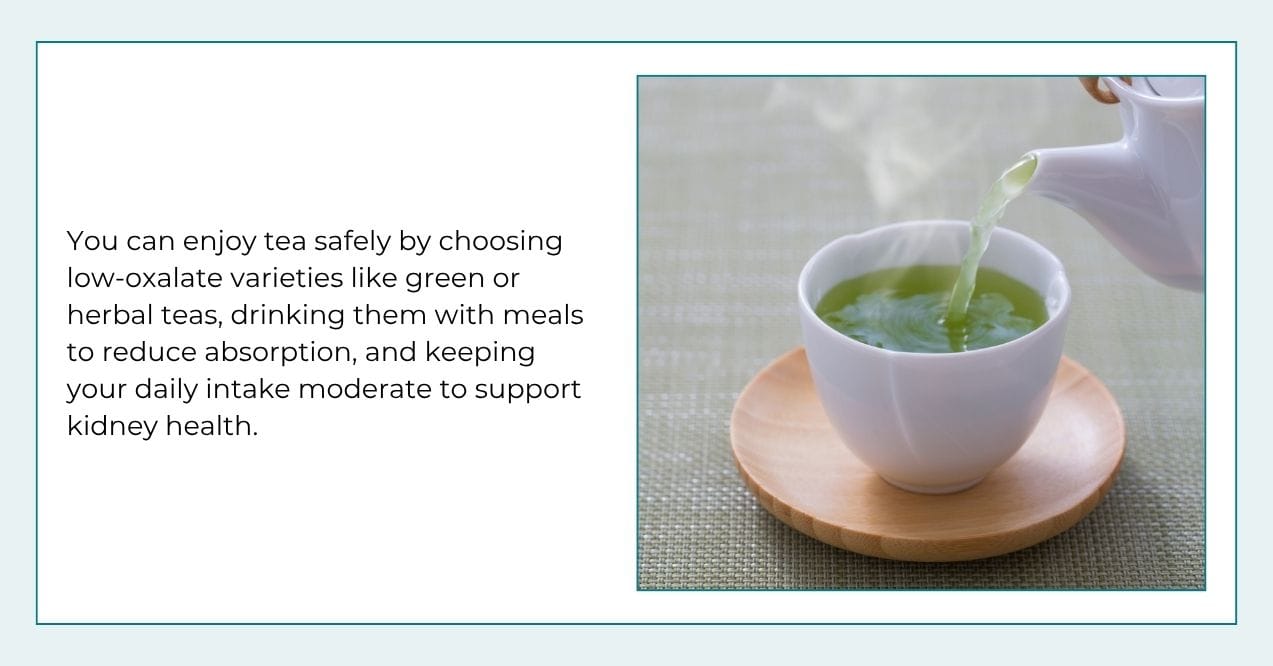
You can enjoy tea while protecting your kidneys. The key lies in smart choices and consumption patterns. These practical strategies help minimize any risk. They allow you to maintain your tea-drinking routine.
Choose Lower-Oxalate Teas
Green tea, white tea, and many herbal varieties work well. They contain much less oxalate than black tea. Rooibos tea is naturally oxalate-free. It offers a rich, satisfying flavor.
Herbal teas contain minimal to undetectable oxalate levels. Chamomile, peppermint, and fruit-based herbal blends rank low. If you want to explore kidney-friendly beverages, check out what tea is good for liver and kidneys. Rotating between different teas throughout the day helps. This reduces oxalate exposure from any single source.
Time Your Tea Intake Wisely
Drinking tea with meals may reduce oxalate absorption. Meals with calcium work especially well. Calcium binds with oxalates in the digestive system. This happens before they reach your bloodstream and kidneys.
Dairy products work well for this purpose. Fortified plant milks work too. Calcium-rich vegetables also help. Avoid drinking large amounts on an empty stomach. This simple timing adjustment can make a difference.
Monitor Quantity and Frequency
Stick to 1-2 cups of black tea daily. This serves as a general guideline for most people. Green tea drinkers may safely consume slightly more. Green tea has lower oxalate content.
Pay attention to serving sizes. Oversized mugs can hold 2-3 standard cups. Track your total daily fluid intake. Maintain hydration alongside tea consumption. Consider alternating tea days with tea-free days. This helps if you have concerns about oxalate exposure.
Other Factors That Impact Your Risk
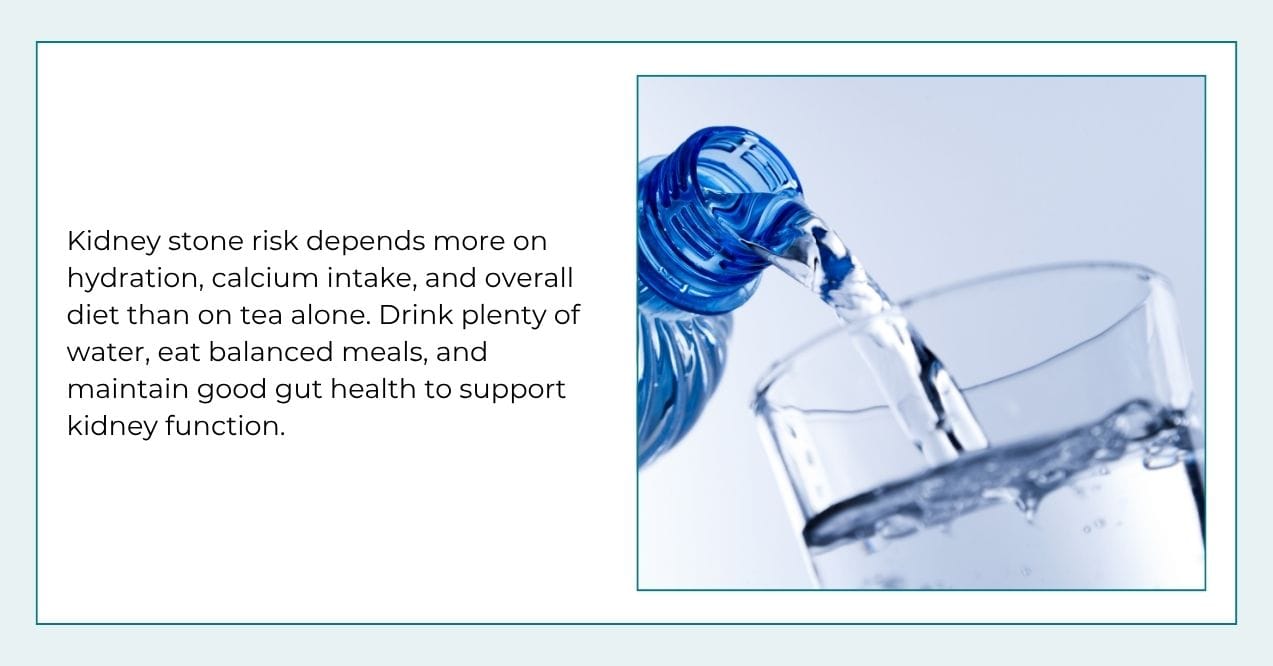
Tea is just one piece of the kidney stone puzzle. Your overall fluid intake plays a larger role. Dietary patterns matter more. Nutritional choices matter more. These factors help you make complete changes. You won’t need to focus solely on limiting tea.
Hydration Matters Most
Insufficient fluid intake ranks as the leading stone cause. A cross-sectional study of 8,195 adults found clear benefits. Daily water intake over 2.5 liters significantly reduced stone risk. Concentrated urine allows minerals and salts to crystallize easily.
Aim for drinking enough fluids to produce light-colored urine. Water remains the best hydration choice. Current guidelines recommend 2.5-3 liters daily.
Moderate tea consumption can contribute to daily fluid needs. The extra liquid may offset oxalate concerns for many people. Dehydration combined with high tea consumption creates problems.
Calcium Intake and Oxalate Binding
Many people mistakenly avoid calcium when worried about stones. Adequate dietary calcium helps reduce stone risk. It binds with oxalates in your gut. This binding blocks oxalate absorption into your bloodstream. In approximately half of individuals, urinary oxalate comes from diet. The other half comes from the body’s own production.
Diet and Gut Health Play a Role
High-sodium diets increase calcium excretion in urine. This raises stone risk. Excessive animal protein may acidify urine. It may increase stone formation.
Certain gut bacteria naturally break down oxalates. Oxalobacter formigenes bacteria degrade oxalates in the digestive system. Antibiotic use can reduce these helpful bacteria. Poor gut health can too. Learn about whether energy drinks cause kidney stones and if too much protein causes kidney stones. A balanced, varied diet benefits both kidneys and health.
Natural Ways to Protect Your Kidneys
Protecting kidney function involves more than managing tea intake. A complete approach includes hydration and nutrition. It may include helpful supplements too. These strategies work together to maintain urinary tract health.
Helpful Herbs and Nutrients
Certain herbs and nutrients may help kidney function. Dandelion acts as a natural diuretic. It may help flush the urinary system. Turmeric contains curcumin. This offers antioxidant properties that may help kidneys.
Ginger has been traditionally used for digestive wellness. It may help urinary wellness too. For those interested in complete nutritional help, supplements for kidney health combine these helpful ingredients. These targeted supplements may help natural detoxification processes. They may help healthy urinary function when combined with hydration. Quality supplements can complement lifestyle changes for complete kidney care.
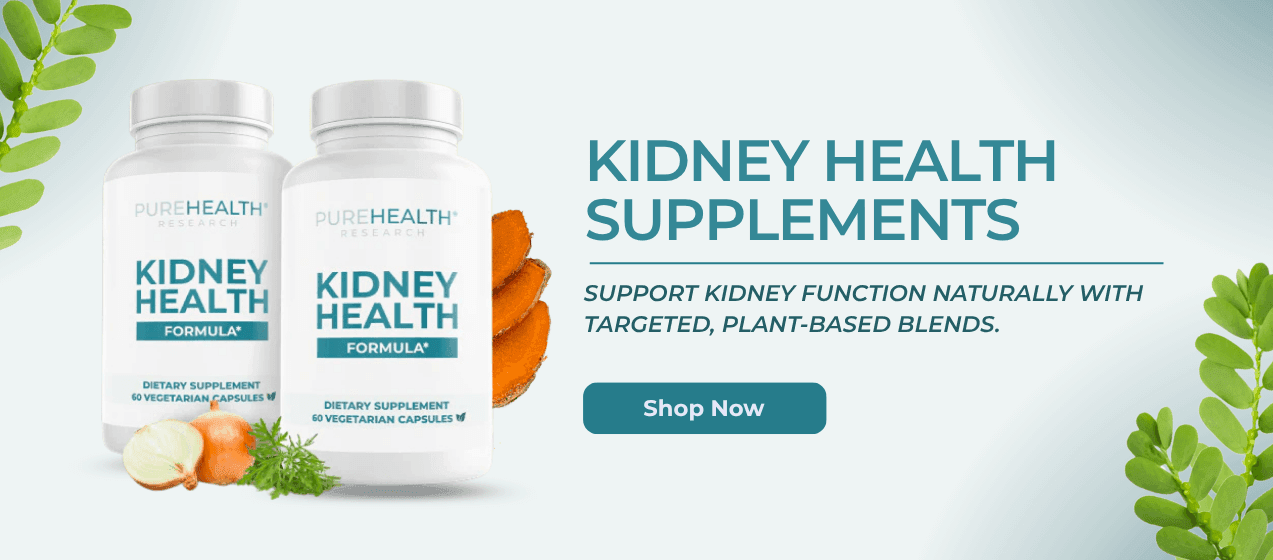
Conclusion
So, does tea cause kidney stones? Evidence shows moderate tea doesn’t cause stones in most people. The relationship depends heavily on tea type. Black tea poses more concern than green tea. This is due to higher oxalate content.
Quantity matters significantly. One to two cups daily appears safe. This applies to individuals without kidney stone history. The Chinese cohort found protective effects at three or more cups. UK Biobank data showed benefits at five cups daily.
Your hydration status influences stone formation more than tea. Dietary calcium intake matters more. Sodium consumption matters more. Rather than eliminating tea entirely, focus on smart choices. Choose lower-oxalate varieties. Drink tea with meals. Stay well-hydrated. Maintain adequate calcium intake.
Black tea has the highest oxalate levels. It may contribute to stones when consumed excessively. Iced tea made from concentrated black tea poses higher risk. This is due to increased oxalate concentration from longer brewing times.
Most herbal teas contain minimal to undetectable oxalates. They are safe choices. Rooibos, chamomile, peppermint, and fruit-based blends pose very low risk. These work well for people concerned about oxalates.
Tea doesn’t typically cause uric acid stones. However, heavily sweetened tea may raise uric acid. This happens due to sugar content. Uric acid stones form mainly from high-protein diets and dehydration.
Tea isn’t inherently bad for kidney stones. Large cohort studies show reduced stone risk with moderate consumption. Combine this with adequate hydration and dietary calcium. Individual tolerance varies based on personal risk factors.
Yes, adding milk may help reduce oxalate absorption. Milk’s calcium binds with oxalates in your digestive system. This happens before absorption. It may lower the amount reaching your kidneys.
Sign up for our Healthy Living newsletter!
Advertisement. This site offers health, wellness, fitness and nutritional information and is designed for educational purposes only. You should not rely on this information as a substitute for, nor does it replace, professional medical advice, diagnosis, or treatment. If you have any concerns or questions about your health, you should always consult with a physician or other health-care professional. Do not disregard, avoid or delay obtaining medical or health related advice from your health-care professional because of something you may have read on this site. The use of any information provided on this site is solely at your own risk.



